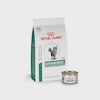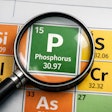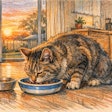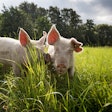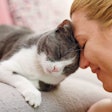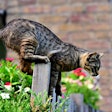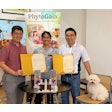This study aimed to determine the effects of supplemental vitamin E and/or selenium on selected parameters of the immune system of the cat.
Nine diets were fed in a 3 × 3 factorial design with no supplementation (control) and either moderate or high levels of vitamin E and/or selenium added to a complete and balanced basal diet. After 28 days of feeding, enhanced lymphocyte proliferative responses to Concanavalin A and phytohaemagglutinin were observed in cats fed diets containing supplemental vitamin E, irrespective of whether they also contained selenium. Cats in the medium vitamin E, high vitamin E, medium vitamin E + medium selenium, high vitamin E + medium selenium, and high vitamin E + high selenium groups all showed enhancement of phagocytic activity compared to control animals.
Results indicate that a supplemental level of 225 mg/kg dietetic management diet of vitamin E appears to have beneficial effects on immune function in the cat.
Source: Teresa O’Brien et al., 2015. Moderate dietary supplementation with vitamin E enhances lymphocyte functionality in the adult cat. Res Vet Scionline, January 2015. doi:10.1016/j.rvsc.2015.01.007.

